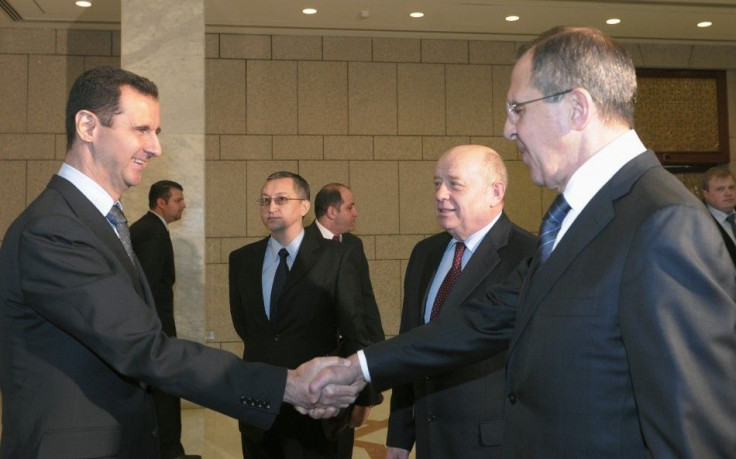Syrian Bloodshed: What Strategy Options Can U.S. Follow?

Following the attack on the city of Homs by Syrian forces on Sunday, China and Russia vetoed a U.N. Security Council resolution that demanded an end to the bloodshed. Meanwhile the U.S. has suspended operations of its embassy in Damascus and begun seeking new ways to get Syria's President Bashar al-Assad to step down.
The Obama administration believes that a negotiated solution with Syria is still possible and said Tuesday that it would not provide arms to Syrian guerrilla forces, CNN reported.
We are not considering that step right now, White House press secretary Jay Carney said in a statement on the news service. We are exploring the possibility of providing humanitarian aid to Syrians. And we are working with our partners, again, to ratchet up the pressure, ratchet up the isolation on Assad and his regime.
Despite promising diplomatic means in handling the crisis, the U.S is slowly losing patience with Assad and has warned the Syrian leader that his days are numbered. Washington is already discussing possible military intervention in the event that President Obama calls for it.
The Security Council, with support from Russia and China, has not provided authorization for military intervention or backing, thereby making it illegal to use any force on Syria.
The U.S. and the NATO forces, as political analyst Michel Chossudovsky noted in GlobalResearch.ca, are sidelining the Security Council's authority by preparing grounds for military intervention in Syria under the pretext of humanitarian grounds.
Rebels from the opposition force, known as Free Syrian Army (FSA), could also be supplied with weapons and ammunition. However, such support will breach an EU arms embargo on Syria and may cause even more bloodshed in the days to come, the Telegraph noted.
By supplying non-lethal aid to the FSA, the U.S. can still build the strength of the opposition army. Syria's Arab allies could provide weapons to the forces, without raising much attention.
Considering the many risks involved, it's quite likely that the Western forces may further urge the UN to put the squeeze on Assad. Secretary of State Hillary Clinton appears to be working with allies to create an international support group, similar to the Contact Group in Libya, to build stronger ties with the Syrian opposition and also pressurize Assad with tightened economic sanctions, the BBC noted.
On the other hand, congressional leaders in the U.S. are calling for a tougher and quicker approach against Assad.
We should start considering all options, including arming the opposition, said the 2008 presidential candidate. The bloodletting has got to stop, Republican Senator John McCain said in a statement on AFP.
© Copyright IBTimes 2024. All rights reserved.





















